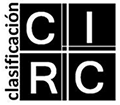Learning by teaching in TikTok: English pronunciation nanolearning
DOI:
https://doi.org/10.18002/ehf.i46.8376Keywords:
TikTok, nanolearning, pronunciation, EnglishAbstract
TikTok seems to be the preferred option for young people, rather than other social networks such as Instagram or Facebook. This circumstance makes it a perfect tool to increase motivation and promote informal language learning as a complement to formal teaching at different educational levels. This paper presents the results of a teaching experience carried out with university students in the subject of English Language. Using the methodology of learning by teaching, the students created and published their own TikTok videos with small learning pills or nanocontents for the practice of English pronunciation. The results reveal the effectiveness of using both an environment and a format that the students easily identify with.
Downloads
Métricas alternativas
References
Alves, Cleilton y Ferreira, Carlos (2016): “Las redes sociales y el aprendizaje informal de estudiantes de educación superior”, Acción Pedagógica, 25, 6-20
Annis, L.F. (1983): “The processes and effects of peer tutoring”. Human Learning, 2, 39-47
Cagas, R. L. D. (2022): “The use of Tiktok videos in enhancing the speaking and grammar skills of higher education students”. Language Education Forum, 3, 1-3. https://doi.org 10.12691/lef-3-1-1
Callanan, M., Cervantes, C., y Loomis, M. (2011): “Informal learning”. Wiley Interdisciplinary Reviews: Cognitive Science, 2(6), 646-655
Colás-Bravo, P. y Quintero-Rodríguez, I. (2022): “YouTube como herramienta para el aprendizaje informal”. Profesional de la información/Information Professional, 31(3), e310315 https://doi.org/10.3145/epi.2022.may.15
Dingler, T., Weber, D., Pielot, M., Cooper, J., Chang, C., y Henze, N.(2017): “Language learning on-the-go: Opportune moments and design of mobile microlearning sessions”. Proceedings of the 19th international conference on human-computer interaction with Mobile devices and services, MobileHCI' 17: 1-12 https://doi.org/10.1145/3098279.3098565
Duran, D. (2014): Aprenseñar. Evidencias e implicaciones educativas de aprender enseñando. Madrid. Narcea
Durán, D. (2017): “¿Se puede aprender enseñando?. Evidencias científicas e implicaciones educativas”. Aula de Innovación Educativa, 259, 35-40.
Ellis, R. (2002): “Grammar teaching-practice or consciousness-raising?.”, en J.C. Richards y W.A. Renandya (eds) (2002) Methodology in language teaching: An anthology of current practice, Cambridge: Cambridge University Press: 167-174.
Garcia, M. B., Juanatas, I. C., & Juanatas, R. A. (2022): “TikTok as a Knowledge Source for Programming Learners: a New Form of Nanolearning?”. En 10th International Conference on Information and Education Technology (ICIET): 219-223. http://doi.org/10.1109/ICIET55102.2022.9779004
Khlaif, Z. N., & Salha, S. (2021): “Using TikTok in education: a form of micro-learning or nano-learning?”. Interdisciplinary Journal of Virtual Learning in Medical Sciences, 12(3), 213-218 doi: 10.30476/ ijvlms.2021.90211.1087
Martinenco, R. M., Martín, R. B., & Garcia, L. (2021): “Ecologías de aprendizaje en educación secundaria: TIC y aprendizaje informal”. Tecnología, Ciencia y Educación 18, 77-97 https://doi.org/10.51302/tce.2021.571
Martínez-Domingo, J. A., Trujillo-Torres, J. M., Rodríguez-Jiménez, C., Berral-Ortiz, B., & Romero-Rodríguez, J. M. (2021).” Análisis de los canales de YouTube como influencers del aprendizaje en Educación Primaria”. Revista Espacios, 42(3), 130-145. https://doi.org/10.48082/espacios-a21v42v03p10
Medina, A. E. R., Cerqueda, D. M., & Ortega, M. D. P. B. (2023): “TikTok para la enseñanza y aprendizaje de lenguas en educación superior: percepciones de profesores mexicanos”. Revista Paraguaya de Educación a Distancia (REPED), 4(1), 46-59. https://revistascientificas.una.py/index.php/REPED/article/view/3283
Radzitskaya, Y., y Islamov, A. (2024): “Nanolearning approach in developing professional competencies of modern students: Impact on self-regulation development”. Journal of Computer Assisted Learning, 40(3),1154–1165. https://doi.org/10.1111/jcal.12943
Ribosa, J. y Duran, D. (2022): “Do students learn what they teach when generating teaching materials for others? A meta-analysis through the lens of learning by teaching”, Educational Research Review 37, 100475 https://doi.org/10.1016/j.edurev.2022.100475
Rogoff, B., Callanan, M., Gutiérrez, K. D., & Erickson, F. (2016). “The organization of informal learning”. Review of Research in Education, 40(1), 356-401. https://doi.org/10.3102/0091732X1668099
Roscoe, R.D. (2014) “Self-monitoring and knowledge-building in learning by teaching”. Instructional Science, 42, 327–351 https://doi.org/10.1007/s11251-013-9283-4
Schugurensky, D. (2000). “The Forms of Informal Learning: Towards a Conceptualization of the Field”, WALL Working Paper n.° 19-2000. Centre for the Study of Education and Work University of Toronto. https://tspace.library.utoronto.ca/bitstream/1807/2733/2/19formsofinformal.pdf
Sourojit Ghosh, and Andrea Figueroa (2023): “Establishing TikTok as a Platform for Informal Learning: Evidence from Mixed-Methods Analysis of Creators and Viewers”. En Proceedings of the 56th Hawaii International Conference on System Sciences, 2431-2440. https://hdl.handle.net/10125/102931
Wang, Hung-Chun y Chen, Cheryl-Wey-Yu (2020): “Learning English from youtubers: English L2 learners’ self-regulated language learning on YouTube”. Innovation in Language Learning and Teaching, 14(4), 333–346. https://doi.org/10.1080/17501229.2019.1607356
Xiuwen, Z., & Razali, A. B. (2021): “An overview of the utilization of TikTok to improve oral English communication competence among EFL undergraduate students”. Universal Journal of Educational Research, 9(7), 1439-1451. DOI: 10.13189/ujer.2021.090710.
Zhang, Y., Lucas, M., Bem-Haja, P., & Pedro, L. (2023): “Analysis of Short Videos on TikTok for Learning Portuguese as a Foreign Language”. Comunicar: Media Education Research Journal, 31(77), 9-19. https://www.revistacomunicar.com/ojs/index.php/comunicar/article/view/115346
Downloads
Published
How to Cite
Issue
Section
License
Copyright (c) 2024 M Dolores Porto Requejo

This work is licensed under a Creative Commons Attribution-NonCommercial-ShareAlike 4.0 International License.
Los autores o autoras que publican en esta revista están de acuerdo con los siguientes términos:
- Los autores o autoras conservan los derechos de autoría de su trabajo y ceden de forma no exclusiva los derechos de explotación (reproducción, distribución, comunicación pública, transformación) a la Universidad de León, por lo que pueden establecer, por separado, acuerdos adicionales para la distribución no exclusiva de la versión de la obra publicada en la revista (por ejemplo, alojarlo en un repositorio institucional o publicarlo en un libro), con un reconocimiento de su publicación inicial en esta revista.
- Este trabajo se encuentra bajo la Creative Commons Attribution-NonCommercial-ShareAlike 4.0 International License. Puede consultarse desde aquí la versión informativa y el texto legal de la licencia.
- Se permite y se anima a los autores y autoras a difundir electrónicamente las versiones pre-print (versión antes de ser evaluada) y/o post-print (versión evaluada y aceptada para su publicación) de sus obras antes de su publicación, ya que favorece su circulación y difusión más temprana y con ello un posible aumento en su citación y alcance entre la comunidad académica.











